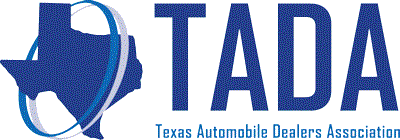How does a dealer know when the controller is using the dealership’s funds as their personal bank account? The following report gives you some indication:
A long-time and trusted employee is generally never suspected of embezzlement; however, checks and balances are necessary in every business. One dealer finally listened to his “gut” and fired an experienced “good ol’ boy grandpa” controller beloved by the dealership employees. He volunteered his accounting skills at the local service club; and built his new home with Bible verses buried in the walls between the insulation and Sheetrock®.
Looking back over the past four-plus years, specific events and circumstances have come to light that may now be shared and hopefully, give insight if not a reminder, to every dealer.
This experienced dealership controller was given the authority to hire and train all of the employees in the accounting department. New hires who did not have accounting backgrounds or knowledge in the field were now hired and trained by the controller.
Unbeknownst to the dealer, petty cash was used by the controller as gifts and “spiffs” to employees. The controller also bought treats for the dealership employees with petty cash, allowing the controller to gain the goodwill and affection of the employees by spreading around the dealership’s cash.
Following best practices, the dealer set up a two-party signatory requirement at the bank for dealership checks. The controller went to the same bank and set up a personal account. He soon befriended the bank’s employees, as he frequented the bank often. The dealer would sign one check, and the controller would create a second check in the same amount for his account.
Soon, the two-party signatory requirement was ignored by the bank’s employees. Multiple dealership checks were written – some for the controller’s personal use. Dealership cash began to be deposited in the controller’s account.
Customer cash was credited with the correct amount on the customer’s paperwork, but the bank deposits were later discovered not to match up with the customer’s receipt and paperwork, as cash found its way into the controller’s pocket.
A CPA firm engaged by the dealer to verify and audit the dealership’s accounting system was beguiled into accepting the controller’s methodology and processes, such as allowing the controller to write the dealership’s checks, pay the dealership’s bills, and reconcile the dealership’s bank statements.
Unfortunately, until this dealer followed his instincts and dismissed the controller and brought in new employees, the controller would have continued to misappropriate dealership monies. The controller’s theft finally ended with over $240,000 embezzled; however, the total amount of the misappropriated cash is still unknown.
After a new accountant discovered numerous inconsistencies in the bank accounts, the local district attorney was contacted. The district attorney then brought in the White Collar Crime and Public Integrity Section of the Attorney General’s office. The controller is now a convicted felon and serving a seven-year sentence.
Suggestions
An organization’s internal controls require a “dual control” for making or receiving payments of any kind. Never have the same employee write the checks and reconcile the bank account. A best practice is always to have at least three separate employees to:
- Have one employee write the checks;
- Require a second employee to reconcile the bank account(s); and,
- Involve a third employee to sign to authorize payments.
The person who opens the mail should never be the same person who is responsible for accounting functions. For example, credit card statements frequently include “checks” to use on the credit card account.
The person who opens the mail should never be the same person who is responsible for accounting functions. For example, credit card statements frequently include “checks” to use on the credit card account. Many businesses have discovered, after the fact, that those credit card checks are used for an employee’s personal purchases. The check then appears on the credit card account. The same employee who writes the dealership’s checks for payment, i.e., to the credit card company, is now the same employee who opened the credit card statement and used the credit card checks for personal use. Reconciling credit card statements should be done by an employee other than the person writing the checks for payment and opening the mail.
The person who opens the mail should keep track of checks in a physical log of what checks are received and when. The checks should then be given to an accountant or bookkeeper with a copy of the list.
According to one accounting firm, one of the best ways to protect cash is by separating duties. An effective cash control system not only separates responsibilities, but also minimizes the number of people who handle the cash before it is deposited. Divide the following duties by having different employees to:
- Receive and deposit cash
- Record cash payments to receivable records
- Reconcile cash receipts to deposits and the general ledger
- Follow up on the collection of returned checks
- Distribute payroll or other checks
Cash accountability requires proper documentation. It also requires that the cash is properly secured and traceable to a specific cash handler.
Can you answer:
- Who has access to cash?
- Why do they have access to cash?
- Where is the cash at all times?
- What occurs from the transaction’s beginning to end?
Best practices:
- Record cash immediately upon receipt
- Give the customer their receipt
- Keep cash secured
- Document transfers
- Have supervisors verify cash deposits
- Require supervisors to approve all voided refund transactions
- Perform periodic “surprise” cash counts
The Assistant AG who handled the prosecution for the Attorney General’s office gives the following advice:
- Never put all the authority for accounting in any one person’s hands.
- An independent third party, independent from the controller, must check the work of the controller and the accounting department.
- Cash is the most difficult to track, and proper paperwork and reconciliation are a must.
A dishonest employee, once allowed in, can wreak havoc on the dealership’s employee morale, line of credit, insurance expenses, and franchise relationships. Unfortunately, this employee worked at other dealerships before his conviction.










